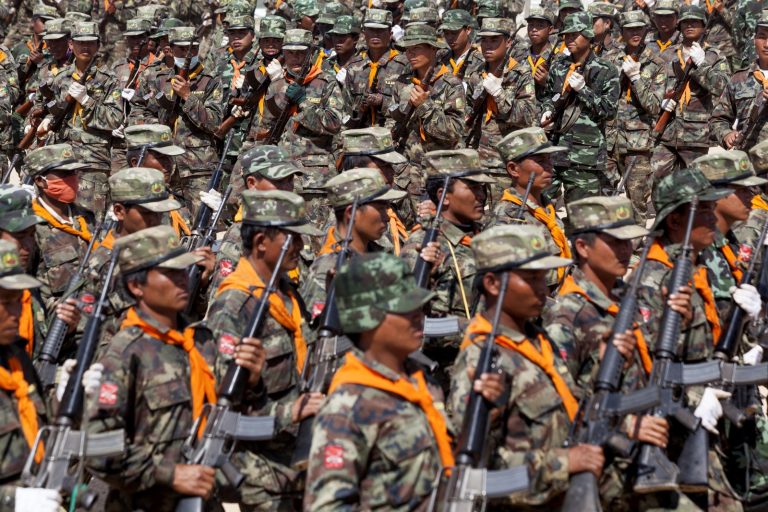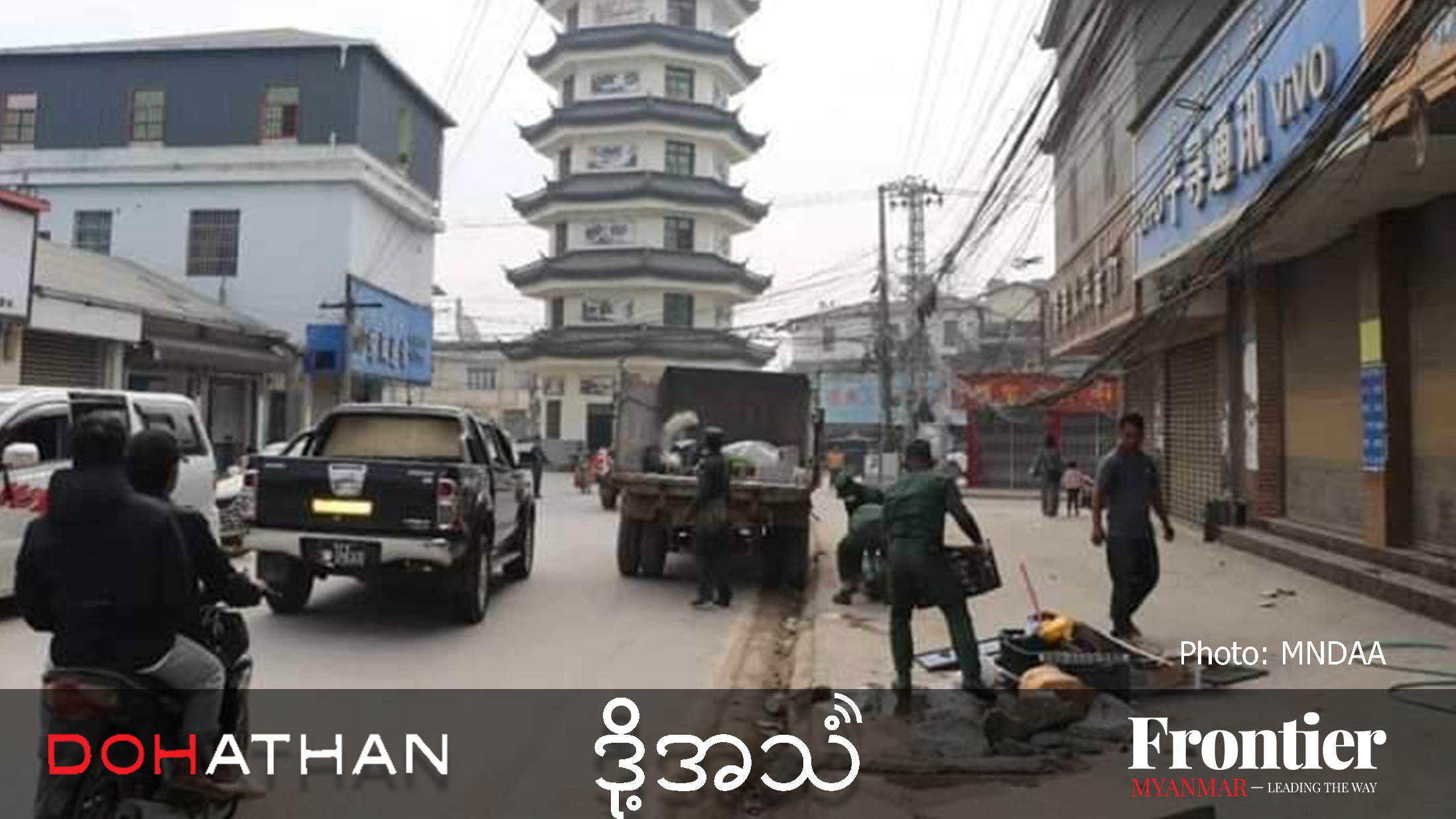Women’s organisations claim cases of men luring women to cohabit with them under false promises of marriage are increasing, but while this is considered a crime under Myanmar law, social stigma discourages women from seeking redress.
By FRONTIER
Nineteen-year-old Ma Soe Soe* moved in with her boyfriend Ko Aung Soe*, aged 22, in April last year after he promised to marry her. The two were both living in Yangon, where Soe Soe worked in a garment factory, but came from the same village in Magway Region’s Myaing Township.
“He assured me we’d get married when we returned to the village; that’s why we lived together,” Soe Soe told Frontier.
They left for the village a month later, but on reaching Pakokku Township in Magway, Aung Soe abruptly called the marriage off. He said it was due to objections from his parents, but a woman close to Soe Soe’s family said this was a lie.
“Actually, his parents didn’t even know they’d been living together in Yangon,” she told Frontier on condition of anonymity.
Soe Soe’s parents then filed a criminal complaint with the village administrator, accusing Aung Soe of “cheating” their daughter by refusing to proceed with the marriage.
The administrator answers to the National Unity Government, a parallel administration appointed by elected lawmakers deposed in the 2021 military coup. Myaing is one of many townships in Myanmar’s central dry zone where armed resistance groups have carved out territory since 2021, allowing the NUG to appoint or co-opt local officials.
Even before the coup, it was customary for village-level officials to mediate even criminal complaints. If this mediation failed, the complaints could be referred to a court. But in this case, Aung Soe’s family agreed to a settlement brokered by the administrator, paying K10 million (US$2,777 at the market exchange rate) to Soe Soe’s family.
The Soe Soe family friend said Aung Soe is “now living at his parents’ place. He only came back after the complaint was filed.”
Aung Soe declined to be interviewed by Frontier, saying that “the case is closed”.
The complaint was under Article 417 of Myanmar’s colonial-era Penal Code, which punishes “cheating” with up to one year in jail – increased to three years in 2016 – a fine, or both. The code describes a “cheater” as someone who “intentionally induces the person so deceived to do or omit to do anything which he would not do or omit if he were not so deceived, and which act or omission causes or is likely to causes damage or harm to that person in body, mind, reputation or property”.
This law is often used to punish men for “sexual deception”, whereby they cohabit with women under false promises of marriage and later abandon them. This can destroy a woman’s reputation in a still largely conservative society.
“In the past, this section [of the Penal Code] was mostly applied to cases of deceit involving money or property. But nowadays, it’s also used for sexual deception cases,” said Nay Pyi Taw-based lawyer U Khin Maung Zaw.
“The offence occurs only if a man falsely promises a woman marriage and doesn’t take responsibility,” he explained. “If a woman consents to a sexual relationship without genuine promises, it may not be considered a crime.”
Daw Zin Wai Htun, a lawyer in Yangon, said that she worked on five cases of sexual deception last year, adding that such cases are rarely brought to court and are instead mostly settled through payment of compensation.
“In the cases I’ve handled, the women lived together out of genuine love with the intention to marry. Offenders should be held accountable with appropriate fines or prison terms,” she said.
‘Young men are more daring now’
Meanwhile, sources in the NUG claim there has been an increase in cases since the coup in the areas now under its control, although many go unreported.
“Sexual deception cases amid the revolution are mainly due to weak law enforcement, with offenders assuming they’ll face no consequences for their actions,” said an official from the NUG’s Ministry of Women, Youth and Children Affairs in Sagaing Region’s Khin-U Township, who spoke to Frontier on condition of anonymity.
The official said the parallel authority in the township had received 20 complaints for “sexual crimes”, including sexual violence and sexual deception, although she could not provide an exact breakdown.
The information department of the NUG’s Ministry of Justice said that across Myanmar last year, the ministry received 24 complaints of “cheating” under the Article 417 of the Penal Code and 27 under Article 376, which punishes rape.
Women’s organisations in ethnic states have also reported an increase in sexual deception since the military seized power.
“Sexual deception cases have always existed, but young men are more daring now and take advantage of the weakening of law enforcement following the coup,” said a representative of the Kayan Women’s Organization based in Kayah State, asking not to be named.
“Women choose to live with men they plan to marry. They have to rely on them because of insecurity and scarce job opportunities. Unfortunately, many men fail to keep their promises,” she told Frontier.
A spokesperson of the Ta’ang Women’s Organization in Shan State said the rise in cases was also due to upheaval caused by conflict, with 2.4 million people becoming internally displaced since the coup according to the United Nations.
“One can argue that the increase in sexual deception is linked to the coup because people are compelled to move to other regions… Young people meet, date and live together without knowing each other’s backgrounds,” she told Frontier, also asking to stay anonymous.
The spokesperson added that under these circumstances, it was difficult for women to track down men who had abandoned them. “In some cases, the man flees after the woman becomes pregnant, leaving her unaware of his whereabouts,” she said.
Last year, TWO received seven complaints of sexual deception, mostly in northern Shan State’s Kutkai and Kyaukme townships.
“It’s very likely that many cases go unreported or are filed with other organisations. We estimate that approximately 85 percent of cases in northern Shan State aren’t reported to us for various reasons,” the spokesperson said.
‘Harmful traditions’
One reason is that women who have sexual relations outside marriage are heavily stigmatised in Myanmar. To make things worse, when a man engages in sexual deception, there is a tendency to blame the woman instead.
“If a woman becomes pregnant without being married in some villages in Kutkai Township, the community views it as a sin and compels her to leave the village until she delivers the baby,” said the TWO spokesperson. “This kind of punishment inflicts a lot of suffering on women, while the man involved is allowed to continue living in the village.”
“If the woman has to give birth during a very cold winter, she risks dying in this situation. This is why we continue to advocate against such harmful traditions,” she added.
The KWO representative similarly attributes the low numbers of complaints to social stigma.
“Not many people seek help regarding sexual deception, but we know it’s rife in our society,” she said. “Victims often refrain from reporting such incidents because they’re embarrassed or afraid. The majority of cases brought to our attention are instead about domestic violence and sexual violence.”
She added that leaders of ethnic armed organisations and village headmen are also often reluctant to intervene in cases of sexual deception because they assume the couple had consented to have sexual relations without a firm promise of marriage.
Another reason few lodge complaints is a lack of trust in legal processes, particularly in junta-run courts.
“Some people want to file complaints but distrust the legal system and hesitate to engage with it,” said Ma Wai Wai, secretary of the Burmese Women’s Union. “The prevalent victim-blaming culture adds further difficulty… Victims therefore often choose not to pursue justice.”
But while the NUG has sought to establish its own law courts in resistance-controlled territory, Wai Wai said many people still hold back from using them.
“Even when they consider lodging a complaint with the NUG, they’re concerned about the system’s transparency and effectiveness, and accessing its judicial system can be challenging for an ordinary citizen,” Wai Wai said.
The women’s organisation representatives say that in reality, cases that do get reported are ultimately addressed within communities, through negotiations between families and the payment of compensation in accordance with local custom.
But even if victims were to make greater use of NUG courts, there are limits to how far these courts could deliver justice.
“Frankly speaking, the NUG doesn’t have proper prisons,” said the Ministry of Women, Youth and Children Affairs official in Khin-U. “It’s challenging for our officials to watch out for offenders and keep an eye on prisoners while also participating in the revolution. That’s why many people resort to negotiations instead.”
*denotes the use of a pseudonym for security reasons







